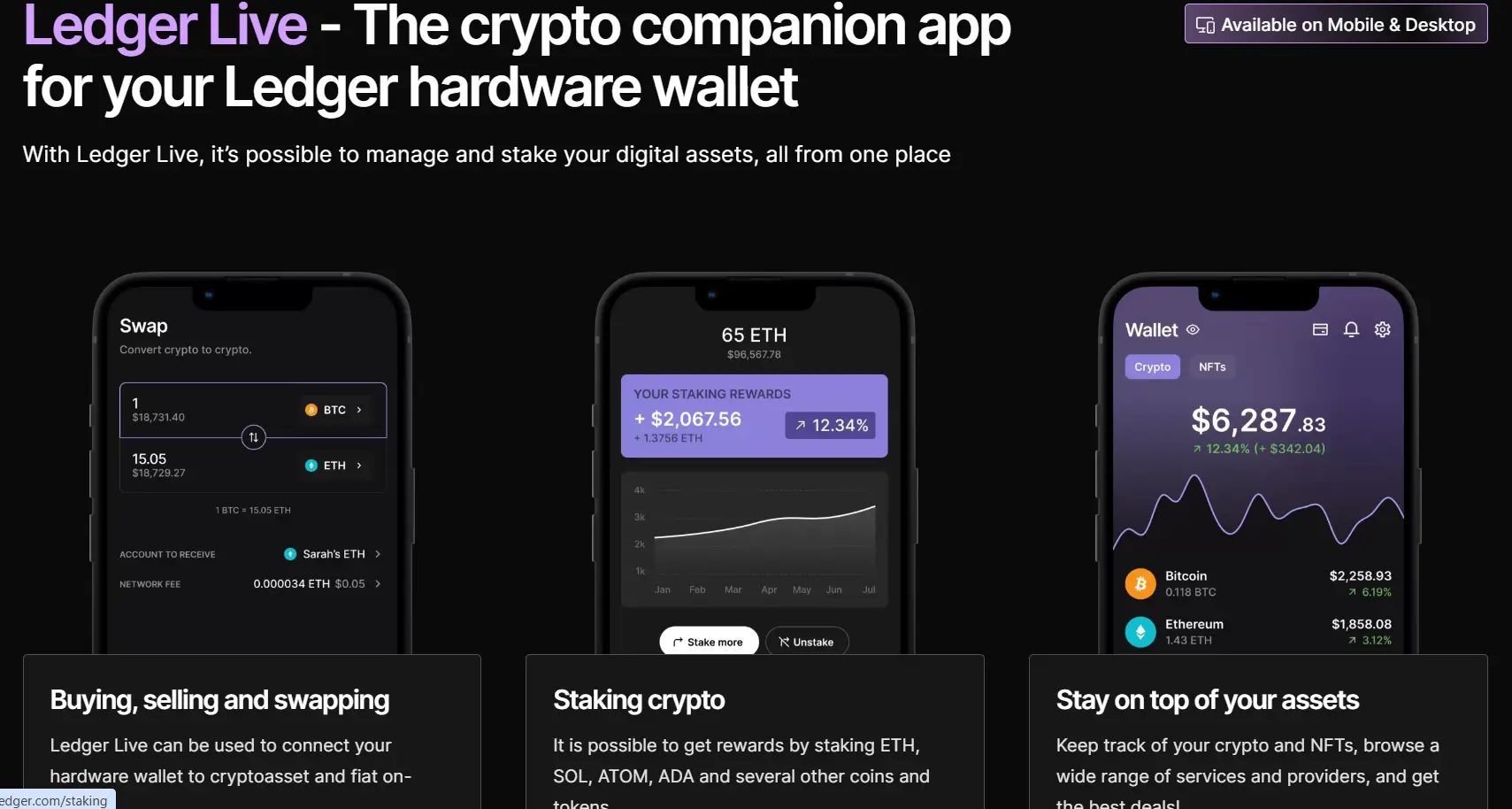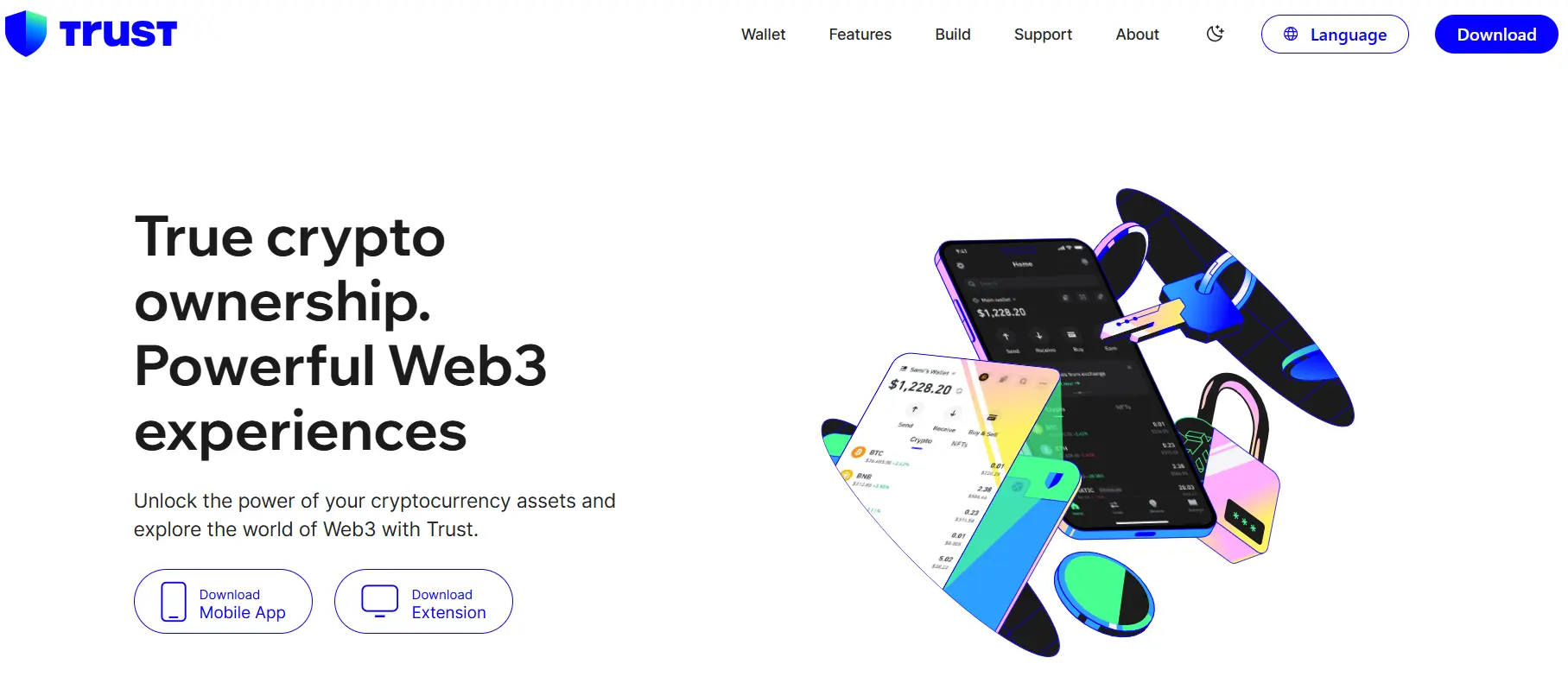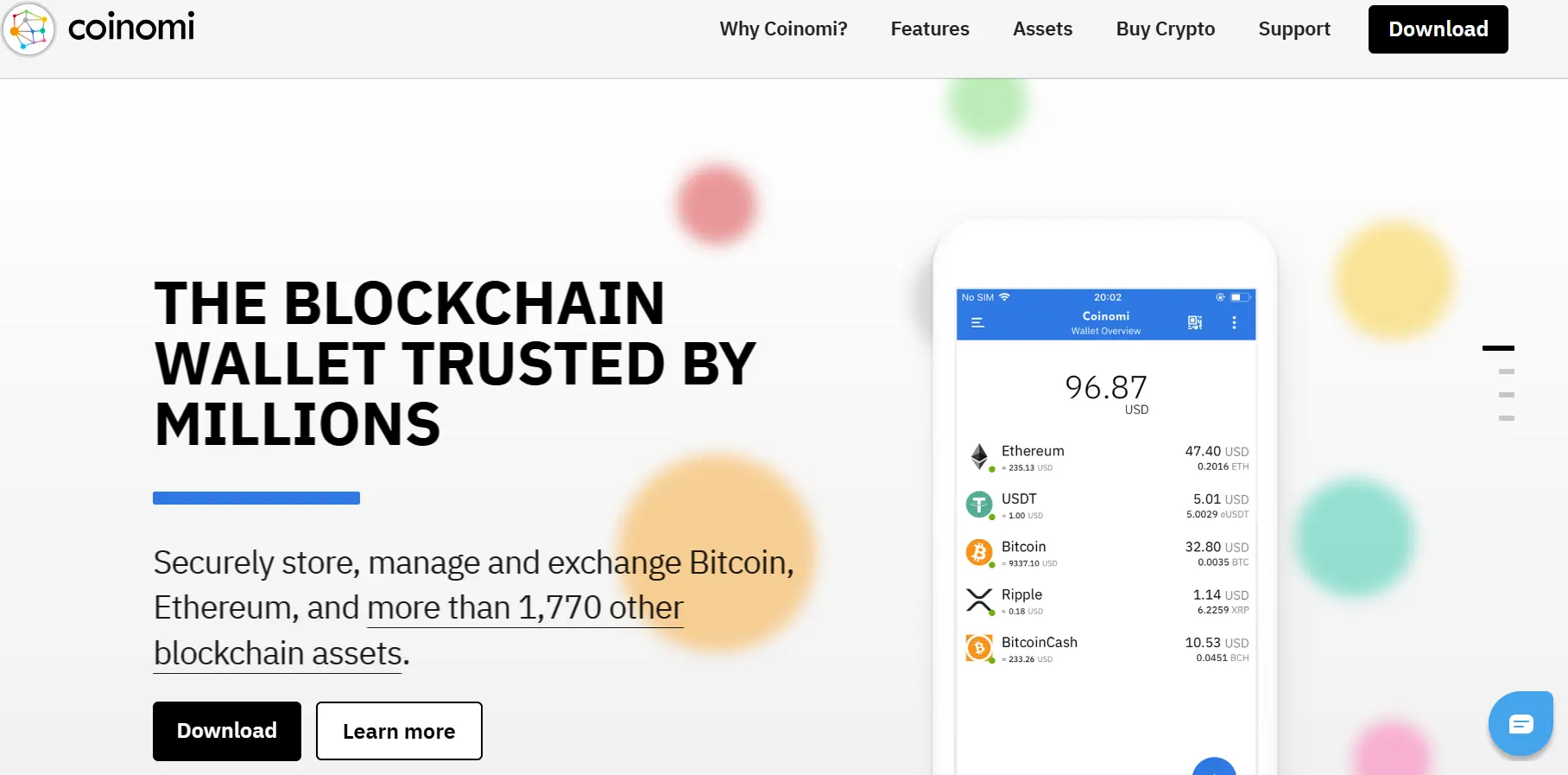Best Crypto Wallets for Gambling: In the dynamic world of online gambling, choosing the right crypto wallet is crucial. Whether you’re a seasoned gambler or just getting started, the security, convenience, and features of your crypto wallet can significantly impact your experience. With 2024 upon us, the landscape of crypto wallets has evolved to offer robust solutions tailored specifically for online gambling enthusiasts.
This guide explores some of the best crypto wallets available in 2024, emphasizing their features, security measures, and usability.
What is a Crypto Wallet?
A crypto wallet is a digital tool that allows you to store, send, and receive cryptocurrencies. It consists of a public key (your wallet address) and a private key (a secret code that grants access to your funds). There are different types of crypto wallets, including hardware wallets, software wallets, and paper wallets, each offering varying levels of security and convenience.
Types of Crypto Wallets
- Hardware Wallets: Physical devices that store your private keys offline. Examples include Ledger Nano S/X and Trezor. They are considered the most secure option since they are immune to online hacking.
- Software Wallets: Applications that you install on your computer or smartphone. They can be further divided into desktop wallets, mobile wallets, and web wallets. Examples include Exodus and Electrum.
- Paper Wallets: Physical pieces of paper where your private and public keys are printed. They are highly secure if stored properly but can be lost or damaged easily.
Understanding Crypto Wallets and Their Importance in Online Gambling
Before delving into specific wallets, it’s essential to grasp the role of crypto wallets in online gambling. A crypto wallet is a digital tool that allows users to store, send, and receive cryptocurrencies securely. For gamblers, these wallets serve as a bridge between traditional currency and digital assets, offering anonymity, faster transactions, and often lower fees compared to conventional banking methods.
Key Factors to Consider When Choosing a Crypto Wallet for Gambling
- Security: Security is paramount when selecting a crypto wallet. Look for wallets that offer two-factor authentication (2FA), encryption, and cold storage options to safeguard your funds from cyber threats and unauthorized access.
- Anonymity: Many online gamblers value anonymity. Opt for wallets that prioritize privacy features, such as coin mixing or privacy coins, to obscure transaction details and protect your identity.
- Transaction Speed and Fees: The speed of transactions and associated fees can vary widely among crypto wallets. Wallets that support faster confirmations and lower transaction fees can enhance your gambling experience, especially during peak gaming times.
- Compatibility: Ensure the wallet you choose supports the cryptocurrencies commonly used in online gambling, such as Bitcoin (BTC), Ethereum (ETH), Litecoin (LTC), and others. Compatibility with gambling platforms is also crucial for seamless transactions.
- User Interface and Experience: A user-friendly interface can make managing your funds simpler and more intuitive. Look for wallets that offer a smooth user experience without compromising on security features.
How to Safely and Securely Store Your Crypto Winnings
In the exciting world of cryptocurrency, safeguarding your winnings is paramount. Whether you’re a seasoned investor or a newcomer, ensuring your crypto assets are secure should be your top priority. With cyber threats constantly evolving, understanding the best practices for storing your crypto winnings can save you from potential losses. Here’s a concise guide on how to keep your digital assets safe and secure.
1. Choose the Right Wallet
The first step in securing your crypto winnings is selecting the appropriate wallet. Crypto wallets come in various forms, each with different security features:
- Hardware Wallets: These are physical devices that store your private keys offline. They are considered the most secure option because they are immune to online hacking. Popular hardware wallets include Ledger Nano S/X and Trezor.
- Software Wallets: These are applications you install on your computer or smartphone. They are convenient but can be vulnerable to malware and hacking. If you choose a software wallet, ensure it has robust security features like two-factor authentication (2FA).
- Paper Wallets: These are physical pieces of paper that contain your public and private keys. They offer high security as they are offline, but you must keep them safe from physical damage or loss.
2. Enable Two-Factor Authentication (2FA)
Two-factor authentication adds an extra layer of security to your wallet. It requires you to provide two types of identification before accessing your wallet. Typically, this involves something you know (like a password) and something you have (like a mobile device). Enabling 2FA can significantly reduce the risk of unauthorized access to your crypto assets.
3. Keep Your Private Keys Secure
Your private keys are the most critical component of your crypto wallet. Never share your private keys with anyone and avoid storing them in easily accessible places like cloud storage or email. If using a hardware or paper wallet, ensure the physical devices are stored in secure, undisclosed locations.
4. Regularly Update Your Wallet Software
Keeping your wallet software up-to-date is crucial for security. Developers continually release updates to fix security vulnerabilities and improve functionality. Regularly updating your software wallet ensures you have the latest protections against potential threats.
5. Backup Your Wallet
Always create backups of your wallet to protect against loss, theft, or damage. Most wallets provide options to back up your private keys or seed phrases. Store these backups in multiple secure locations. If you lose access to your wallet, having a backup can help you recover your assets.
6. Be Cautious of Phishing Attacks
Phishing attacks are attempts to steal your private information by masquerading as trustworthy entities. Always double-check the authenticity of websites and emails related to your crypto transactions. Never click on suspicious links or provide sensitive information to unverified sources.
7. Use Cold Storage for Long-Term Holdings
For long-term crypto holdings, consider using cold storage. Cold storage refers to keeping your crypto assets offline, such as in a hardware or paper wallet. This method provides maximum security as it isolates your assets from online threats.
Top Crypto Wallets for Online Gambling in 2024
1. Ledger Nano X
Type: Hardware Wallet
Overview: The Ledger Nano X is one of the most popular hardware wallets on the market. It supports a wide range of cryptocurrencies and offers top-notch security features. The Ledger Nano S and Nano X are hardware wallets known for their robust security features.
These wallets store your private keys offline, offering protection against online threats. With support for numerous cryptocurrencies and a user-friendly interface, Ledger wallets are ideal for gamblers seeking top-tier security and ease of use.
Pros:
- Extremely secure with offline storage.
- Supports over 1,500 cryptocurrencies.
- Bluetooth connectivity for mobile use.
Cons:
- Expensive compared to other wallets.
- Not as convenient for frequent transactions.
Ideal For: Serious gamblers who prioritize security and hold significant amounts of cryptocurrency.
2. Trezor Model T
Type: Hardware Wallet
Overview: The Trezor Model T is another leading hardware wallet known for its strong security and support for numerous cryptocurrencies. Trezor Model T is another hardware wallet that prioritizes security and usability. It features a touchscreen interface, and passphrase protection, and supports a wide range of cryptocurrencies. Trezor wallets are renowned for their reliability and are suitable for both beginners and experienced users in the gambling community.
Pros:
- Excellent security features.
- Easy-to-use touchscreen interface.
- Supports a wide range of cryptocurrencies.
Cons:
- High cost.
- Larger than some other hardware wallets.
Ideal For: Gamblers who need top-level security and are comfortable investing in a high-quality device.
3. Trust Wallet
Type: Mobile Wallet
Overview: Trust Wallet is a mobile cryptocurrency wallet that has gained significant popularity due to its user-friendly interface, extensive support for various cryptocurrencies, and robust security features. Originally launched in 2017, Trust Wallet was acquired by Binance, one of the largest cryptocurrency exchanges, in 2018. It supports a wide array of cryptocurrencies and has a user-friendly interface.
Pros:
- User-friendly and easy to set up.
- Supports a vast number of cryptocurrencies.
- Integrated DApps browser for decentralized applications.
Cons:
- Being a mobile wallet, it’s more susceptible to security risks compared to hardware wallets.
Ideal For: Casual gamblers who want a convenient and secure mobile solution.
4. Exodus
Type: Software Wallet
Overview: Exodus is a desktop and mobile wallet known for its beautiful design and ease of use. It offers built-in exchange features and supports over 100 cryptocurrencies. Exodus is a versatile software wallet that combines a sleek design with robust security features.
It supports a wide array of cryptocurrencies and offers a built-in exchange feature for seamless trading. With its intuitive interface and strong emphasis on user experience, Exodus appeals to both casual and frequent gamblers alike.
Pros:
- Intuitive and visually appealing interface.
- Built-in exchange for quick crypto swaps.
- Supports a wide range of cryptocurrencies.
Cons:
- Not as secure as hardware wallets.
- Transaction fees can be high.
Ideal For: Gamblers who value a user-friendly experience and frequently trade between cryptocurrencies.
5. MetaMask
Type: Web and Mobile Wallet
Overview: MetaMask is a well-known crypto wallet, especially popular among users who deal with Ethereum and ERC-20 tokens. Initially launched as a browser extension, MetaMask has expanded its offerings to include a mobile app, providing a seamless experience across devices.
Its primary appeal lies in its ease of use and its integration with decentralized applications (DApps), making it a top choice for those involved in the Ethereum ecosystem.
Pros:
- Easy to use and set up.
- Ideal for Ethereum-based tokens and DApps.
- Available as a browser extension and mobile app.
Cons:
- Limited to Ethereum and ERC-20 tokens.
- Online storage makes it more vulnerable to hacks.
Ideal For: Gamblers who primarily use Ethereum and are active in the DApp ecosystem.
6. Coinomi
Type: Mobile Wallet
Overview: Coinomi is one of the most versatile and user-friendly mobile wallets available today. Launched in 2014, Coinomi has established itself as a reliable and secure option for managing a wide variety of cryptocurrencies.
This section will explore Coinomi in greater detail, highlighting its features, security measures, supported cryptocurrencies, and user experience to help you determine if it’s the right wallet for your gambling needs.
Pros:
- Supports over 1,770 cryptocurrencies.
- Strong security features.
- User-friendly interface.
Cons:
- Mobile-only, which may not be ideal for all users.
- No support for hardware wallet integration.
Ideal For: Gamblers who need a versatile wallet with strong security and support for many cryptocurrencies.
7. Mycelium
Type: Mobile Wallet
Overview: Mycelium is one of the oldest and most respected mobile wallets in the cryptocurrency space, particularly renowned for its advanced security features and strong focus on Bitcoin. It has been around since 2013, making it a veteran in the rapidly evolving world of crypto wallets.
Over the years, Mycelium has built a reputation for providing a highly secure and customizable wallet experience tailored to both novice and experienced users alike.
Pros:
- Advanced security features.
- Highly customizable.
- Supports hardware wallet integration.
Cons:
- Primarily focused on Bitcoin.
- The interface can be complex for beginners.
Ideal For: Bitcoin gamblers who want a mobile wallet with strong security and customization options.
Conclusion
Choosing the best crypto wallet for online gambling in 2024 involves assessing your priorities—whether it’s security, anonymity, transaction speed, or user experience. Each wallet mentioned here offers unique features tailored to meet the diverse needs of online gamblers. By prioritizing security measures and considering usability factors, you can enjoy a safer and more streamlined gambling experience with cryptocurrency.
As the landscape continues to evolve, staying informed about new developments and wallet updates will empower you to make informed decisions that enhance your online gambling journey.
Frequently Asked Questions (FAQs)
Q1. What is the best crypto wallet for gambling?
The best wallet depends on your specific needs. For high security, hardware wallets like Ledger Nano S are ideal, while hot wallets like Trust Wallet offer more convenience.
Q 2. Are crypto wallets safe for online gambling?
Yes, crypto wallets are generally safe for online gambling, especially if you follow best practices for security.
Q3. Can I use any crypto wallet for gambling?
Not all wallets are compatible with gambling platforms. Ensure your chosen wallet supports the required cryptocurrencies and platforms.
Q4. How do I transfer funds from my crypto wallet to a gambling site?
Typically, you will send funds from your wallet to the gambling site’s provided address. Always double-check the address to avoid errors.
Q5. What do I need to do if I lose access to my crypto wallet?
If you lose access, use your recovery phrase or backup to restore your wallet. Ensure you have these details stored securely beforehand.






